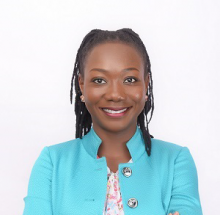You are here
Give women with disabilities a chance
Mar 19,2024 - Last updated at Mar 19,2024
ACCRA — It is well known that women in developing economies have fewer educational and employment opportunities than their male counterparts, leading to higher rates of poverty. In Ghana, for example, men have higher employment rates and incomes than women and are less likely to be engaged in vulnerable jobs. Less widely recognised is that, by some metrics, the gap is not narrowing quickly enough: women in developing economies continue to account for a significant share of the economically disadvantaged. Add disability to the mix, and the challenges facing women are even greater.
There are over one billion people living with disabilities worldwide, some 80 per cent of whom reside in developing countries. While there are many models for measuring disability, some conclusions are indisputable: disability is more prevalent among women (19 per cent) than men (12 per cent); people with disabilities face high barriers to education and employment, leading to higher rates of lifelong poverty; and outcomes for women with disabilities are even worse than those for their male counterparts.
Ghana’s experience is a case in point. Women are disproportionately represented among the 8 per cent of the population who face functional limitations related to sight, hearing, mobility, cognition, self-care, and/or communication. And, as the chart shows, 68 per cent of men with disabilities are in vulnerable employment, compared with 80 per cent of women with disabilities, while 40 per cent of men with disabilities have attained secondary and post-secondary education, compared with just 31 per cent of women with disabilities.
These poor outcomes partly reflect social biases. Expectations of the capabilities of people with disabilities tend to be low, so households are often unwilling to spend limited resources on educating and training family members with disabilities, and employers tend to be reluctant to hire them. Since women and girls are more often underestimated than men and boys, nearly 90 per cent of people worldwide hold fundamental biases against women, they are more likely to be left behind.
Though legal protections for people with disabilities are in place, Ghana ratified its Persons with Disability Act (Act 715) in 2012, and the United Nations Convention on the Rights of Persons with Disabilities has been in force since 2008, they have been insufficient to counteract entrenched biases. A key reason may well be the lack of comprehensive data on disability-related issues, particularly in Africa. Such data is essential to design and implement more effective policies.
The first step towards addressing discrimination against persons (especially women) with disabilities is thus to ensure adequate collection of relevant information, especially labor-market data, not least by emphasising more inclusive sampling. This would facilitate disability-disaggregated research and enable robust evidence-based policymaking.
Strengthening disability laws requires the use of sufficiently precise language, and implementation of supportive policies, to ensure that people can take advantage of the opportunities to which their right is guaranteed. For example, Ghana’s Persons with Disability Act 715 guarantees persons with disabilities a free education, but fails to clarify until which level, let alone establish relevant supportive structures. The consequences of these failings are far-reaching: A comprehensive, high-quality education is vital to lift people with disabilities out of poverty, vulnerability and exclusion.
So is access to quality employment. But here, too, laws in many countries, including Ghana, are lacking. Since the public sector can provide only so many jobs, governments must encourage private employers to ensure that (suitably qualified) persons with disabilities account for a certain share of their workers. Both “carrots” (like tax rebates) and “sticks” (repercussions for non-compliance) can be used. In Ghana, the Disability Common Fund, a social-protection programme aimed at alleviating poverty among people with disabilities, should also be scaled up.
But economic empowerment is just the beginning. Women with disabilities in Ghana and elsewhere grapple with reduced access to healthcare and higher risks of sexual exploitation. Policymakers must therefore devise laws ensuring that all people have equal access to healthcare and other social services, including domestic-violence shelters.
All such efforts must recognize and account for the diverse challenges faced by people with different kinds of disabilities, as well as the reality that women face even greater discrimination than men. For example, while healthcare access must be improved for all people with disabilities, special attention must be paid to the provision of sexual- and reproductive-health services, including breast-cancer screenings and family-planning services, for women with disabilities.
Furthermore, organisations working to protect persons with disabilities must design programmes tailored for different groups. And relevant NGOs should promote participatory approaches to the development of interventions aimed at supporting vulnerable groups, including those with disabilities.
But all the policies and programmes in the world cannot ensure full social and economic inclusion for people with disabilities. Campaigns are also needed to reduce the social stigma that contributes significantly to the marginalisation faced by people with disabilities.
The fact is that disability is both a cause and a consequence of poverty. If the world is to have any hope of achieving the Sustainable Development Goals, especially eliminating poverty, achieving gender equality, and enhancing social and economic inclusion, the needs of people with disabilities must be fully considered.
Nkechi S. Owoo, a health and demographic economist at the University of Ghana, is a non-resident research fellow at the Centre for Global Development in Washington, DC, and at the Partnership for Economic Policy in Nairobi, Kenya. Copyright: Project Syndicate, 2024.














Add new comment